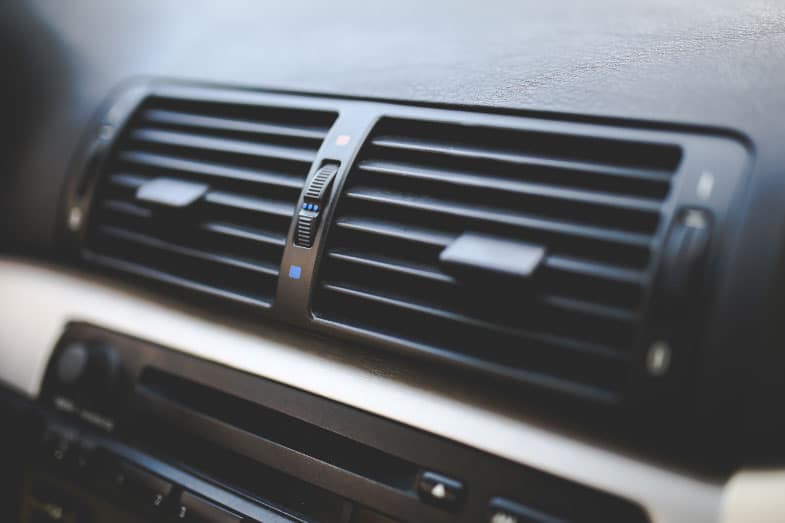Why Does My Car Smell Like Vinegar
Having a vinegar smell in the car happens even to the best of us. For new vehicles, this unpleasant odor is something to expect and usually dissipates after the first use. But for those that have lasted years, a quick drive around town may not eliminate that funky, musty smell. Are you getting the same problem? Let’s go through what causes that vinegary scent and how to get your vehicle back to smelling fresh and clean.The number one reason your car vents smell like vinegar is trapped moisture, which may come from either overuse or disuse of your vehicle. Other causes of that acidic smell include mold or bacteria buildup, damaged drain tubes, gas leaks, and other air-conditioning system malfunctions.Reading: why does my car smell like vinegarGetting to the specific causes of this weird scent will help address the issue faster and more permanently. On this note, here is a list of 15 of the most common answers to the question, “Why does my car AC smell like vinegar?”
To make this guide more comprehensive, I went ahead and included causes behind other smells, too. Find out more about these causes, how to spot the problem source based on the type of smell, and top tips on how to eliminate that unwelcome odor in your vehicle.
Why Does My Car AC Smell Like Vinegar?
Contents
When water accumulates in the drip lines or ducts, fungus, bacteria, and mold start to grow and eventually produce that stale odor you get from your air-conditioning system. Generally, the scent is not just vinegary – it may also smell of mildew, crayons, burning plastic or oil, sour milk, dirty socks, or even rotten eggs. While most of these unpleasant odors are benign, others can be a health hazard. So, regardless of the smell, it is best to investigate the cause thoroughly. If the stench remains after cleaning or replacing the A/C components, consult a professional mechanic for resolution.
1. Dingy Air Vents or Ductwork
Mold growth does not happen overnight. For an infestation to occur, your vehicle would have to be in a warm location with high water vapor content. This would mean that vehicle owners in sunny Florida are more prone to having moldy vents and ducts. However, your car may also suffer the same fate if it goes through temperature or seasonal changes – usually from winter to spring.Simply put, your vehicle may end up collecting water droplets instead of evaporating them when there is high water vapor content in the atmosphere. When mixed with dust and debris (including leaves and pollen if you like to drive with your windows down) inside the air vents, the combination results in mold or mildew that causes the air coming out of your AC unit to smell acidic or vinegary.Asking yourself, “Why does my car air conditioner smell like vinegar?” when you step inside your car is the obvious indication that your HVAC system is not quite spic-and span. But these other indicators can also lead you to suspect a mold infestation:
- Irritation in your nose, throat, and eyes when turning on your wheeler’s AC
- Allergic symptoms such as watering eyes, rashes, and runny nose
- Getting unexplainable headaches when stepping inside the car
- Occurrence of fatigue, nausea, and dizziness only when riding a specific vehicle
- Mold is visible and around the air ducts, condensate pans, and within the intake vents.
2. Excessive Condensation
Excess condensation happens when your car’s condensation pan overfills and leaks water. If your AC and condensate drainage system is properly working, you should not be bothered by this problem. Otherwise, expect water drippings to overflow the pan and moisture to form on ceilings and walls inside your vehicle (even in the trunk and spare-tire casings in some cases). There are several things guaranteed to cause excess condensation in your air-conditioning system, namely – clogged drain due to algae, burnt-out pump, rusted condensation pan, dirty air filter, and a loose/broken drain line.
3. Clogged Condensate Pan
Your condensate pan is responsible for catching condensate forming from warm air passing through the evaporator coils. These water drippings then flow into the PVC condensate drain pipe and get directed outside your vehicle cabin. If the condensate pan (view on Amazon) becomes cracked, corroded, or blocked, collected water droplets that did no evaporate trickle down from the air handler through your ceiling, walls, and car floors. This moisture, in turn, generates that unpleasant vinegar smell when you run your AC.
4. Dirty or Clogged Air Filter
Perhaps, a dirty air filter is the 2nd most common reason for that musty, dingy smell inside vehicles. Not only do air filters get soiled right away, but it can also be easy to miss replacing them when needed. Moisture can accumulate in the filters pretty quickly, especially for owners who live in places with a hot, humid climate or those who heavily use their air-conditioning.The two most popular filter cleaning methods – “beating” and “blowing out”- are known to mechanics and vehicle owners. However, they may not always be the best cleaning methods to use.
5. Moldy Evaporator Coil and Fins
Read more: why is my dog biting his tail | Top Q&AUnlike the other items in this list that come from excessive or improper use of one’s vehicle, this particular reason stems from prolonged periods of disuse. Keeping your daily commuter too long in the garage can cause dust, dirt, and (more importantly) moisture to collect on the evaporator coil and fins. When this happens, the said components become a breeding place for mold growth.There are tell-tale signs that will indicate the need to check on your evaporator coils and fins long before you start smelling that vinegary scent inside your car. If you experience frequent AC breakdowns, have to change your filter frequently, or notice an unusual battery drain – chances are your coils and fins have already accumulated a good amount of mold.
6. Broken Catalytic Converter
In some cases, your vehicle will smell differently instead of your household vinegar. Should you encounter this, know that your car’s emissions system – specifically the catalytic converter (view on Amazon)- is to blame. Its purpose is to minimize harmful emissions by converting hydrogen sulfide (which your car produces) into harmless gases like sulfur dioxide. If your catalytic converter is broken or damaged, it fails to do this step – causing you to wonder, “Why does my car smell like vinegar and rotten eggs?”
7. Worn Fuel Filter
A fuel filter serves as your vehicle’s first line of defense against dirt and rust particles that may cause engine damage or unnecessary wear and tear of its components. Apart from that, it also works closely with your car’s fuel pressure sensor and catalytic converter to ensure minimal bad gas emissions. In mint condition, it helps the converter turn small amounts of hydrogen sulfide compound in fuel into a harmless, odorless form. But when worn down, the fuel filter fails to screen impurities, leading to an influx of sulfur deposits the catalytic converter end up burning.
8. Faulty Fuel Pressure Sensor
Along with a fuel filter in good condition, the fuel pressure sensor regulates fuel use in vehicles and prevents the catalytic converter from overheating or getting clogged with excess oil. If this sensor fails, then the converter ends up being unable to process all exhaust byproducts that exit the vehicle through the tailpipe. The outcome is that distinct smell of rotten eggs as opposed to odorless, harmless gases.
9. Old Transmission Fluid
Out of all the possible causes of obnoxious smells inside your cabin, stale transmission fluid is the simplest and easiest to remedy. Skipping on your periodic transmission flushes results in that old transmission fluid leaking into other vehicle systems and causing that rotten egg smell. While electricity-powered cars are exempt from this problem, fuel-fed manual vehicles require regular vehicle inspection and strict adherence to maintenance schedules.
10. Organic Material Buildup
Getting dead animals stuck in your air ducts cannot be avoided if you use your vehicle for a lot of off-roading. Like dirt and debris, animal corpses contribute to mold growth when mixed with water droplets inside the HVAC system. The intensity of the odor depends on which compartment the dead animal is in or whether or not it is nearing decomposition. If it is somewhere around the blower, the stink will be at its worst. If the animal is rotting away, the smell lessens.
11. Bacteria Growth in the Air Handler
More than 99% of present-day cars have both an air handler and AC system. But if you own an older make and model, you may have an air handler only instead of full air-conditioning. The mechanism behind the two is the same – except that an air handler does not convert hot air into cold air, as it just circulates air inside the vehicle. When the air handler goes into defrost cycle and becomes damp, it produces a disgusting but familiar smell – a.k.a. the Dirty Sock Syndrome.
12. Gas Leak
Fuel variants have an additive called methyl mercaptan. For many owners, this is nothing special – until their vehicle starts to leak gas. When a gas leak happens, the smell of gas permeates the air-conditioning, along with the mercaptan spill. The resulting smell is very distinct due to its skunk-like stench. The vinegary scent from mold and mildew is still tolerable (to an extent). However, a mercaptan spill is not only repulsive but also hazardous for the driver and passengers.
13. Defective AC Components
The car AC smelling like vinegar is more common and often indicates a lack of cleaning or water sitting in the air duct. Meanwhile, the smell of burning plastic or rubber points to a more serious problem. It may mean one of two things – either an issue with the A/C compressor, the compressor clutch, a misaligned pulley (which causes the belt to drag), or one or more electrical components actually burning. Electrical shorts or excessive dust in the vents can also cause the same burning smell in your vehicle’s air conditioning.
14. Leaking Battery Acid
Although not as prevalent of a cause as mold or mildew, leaking battery acid is one of the more dangerous items on this list. Not only does it cause that vinegar smell from your car AC, but it also poses a safety hazard for vehicle owners – not to mention a dirty driveway and garage floor. Overcharging, icy weather, and using an aged, worn battery are top triggers for a battery body to expand and leak acid. In turn, this acid leak causes that vinegar smell when you turn on the A/C, characterized by a strong sulfuric scent.
15. Ozone-Emitting Electric Motor
With the automobile industries’ shift to cleaner fuels and electric cars in recent years, this has been quite the topic. However, ozone emission does not only apply to electricity-powered vehicles – contrary to what many people think. Four-wheelers that use either electricity or fossil fuels (LPG, gasoline, and diesel) emit ozone. And since vehicles make use of the air outside (just condensing the moisture and taking out the humidity from it), then your AC is likely bringing that ozone emission inside your car, causing that vinegary stench.
How to Get Vinegar Smell Out of Your Car

Remove Dirt and Clutter
Get Rid Of Moisture
Clean Filters and Drain Lines
Use the Right Products
For best results, open your hood and spray the air-purifying element in the intake valve – with the A/C set pulling air in from the outside – so that it enters the duct system.Baking SodaFor excess condensation (and even food spills) on your carpets, try baking soda. This household ingredient effectively removes odors so long as the carpets have been thoroughly cleaned and wiped dry. Just rub it on the carpet surface, leave it for at least two hours, then vacuum the dried baking soda after.Vinegar and Lemon JuiceA vinegar solution with lemon juice (or other citrus fruit and fresh herbs) and a bit of dish soap can neutralize the smell of vinegar inside your vehicle. Similarly, a mixture consisting of 1 tbsp. detergent, ½ tbsp. baking soda and a cup of water can remove mold and mildew growth.ShampooShampoo floor mats and seats regularly. You may do this the old-fashioned way with detergent, water, and a nylon scrub. Or you can purchase an upholstery shampoo from your local auto shop. A hairdryer will suffice if you only need to remove moisture from a small area. But if you have carpets instead of mats, a carpet cleaner and wet/dry shop vacuum will do the trick. If not, try steam cleaning.CharcoalA lingering vinegar stench can be challenging to remove, even after addressing what has caused it. Thankfully, charcoal can help address this problem. Just leave a chunk in your vehicle for at least two days and let it work its magic on removing any nasty car smell. Otherwise, you may need to replace the fuel pressure regulator, transmission fluid, or catalytic converter to eliminate your vehicle’s vinegary scent.Mold InhibitorAfter a thorough cleanup of your vehicle and A/C components, use a mold inhibitor or incorporate an anti-microbial agent (preferably tested via the ASTM G21 antifungal method or AATCC Test Method 30) into the foam, filters, rubber, and adhesive components of your air-conditioning system. Unlike the other steps, however, this is best done by a professional. You may also opt for bamboo charcoal air fresheners and oil diffusers to keep your four-wheeler smelling clean and fresh.
Conclusion – Vinegar Smell in Car AC

While this guide covers more than just having that vinegar smell from the car AC, note that the information and remedies shared here are not exhaustive. If you encounter this problem, it would still be best to refer to your service manual for steps or seek the assistance of a professional. While taking on the task further improves your mechanical expertise, a visit to your local dealer can save valuable time, money, and the hassle of guesswork.If anything, I hope that this article makes repulsive odors from your vehicle less overwhelming and more cost-effective.Read more: Why do people say i mean
Last, Wallx.net sent you details about the topic “Why Does My Car Smell Like Vinegar❤️️”.Hope with useful information that the article “Why Does My Car Smell Like Vinegar” It will help readers to be more interested in “Why Does My Car Smell Like Vinegar [ ❤️️❤️️ ]”.
Posts “Why Does My Car Smell Like Vinegar” posted by on 2021-09-02 03:50:04. Thank you for reading the article at wallx.net


